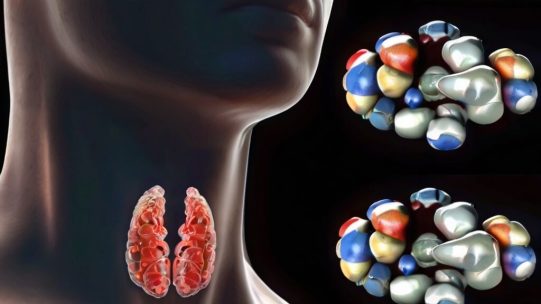Guidelines for the Treatment of Hypothyroid Patients

A study led by the University of Birmingham strongly supports current recommendations for the treatment of patients with hypothyroidism and validates the latest UK and US guidelines, researchers say.
The retrospective cohort study, published in the BMJ, analyzed anonymous GP records of more than 162,000 patients diagnosed with hypothyroidism.
Hypothyroidism is a condition in which the thyroid gland does not produce enough hormone, and common symptoms include fatigue, weight gain, and depressed mood. In the UK, hypothyroidism affects 15 out of every 1,000 women and 1 out of every 1,000 men. Children can also develop hypothyroidism.
There is no way to prevent hypothyroidism, and in most cases it is caused either by the immune system attacking and damaging the thyroid gland or by damage to the thyroid gland during treatment for hyperthyroidism or thyroid cancer.
If untreated, hypothyroidism can lead to complications such as heart disease, pregnancy problems, and in rare cases, a life-threatening condition called myxoedema coma. Patients with hypothyroidism usually have to take a daily hormone pill called levothyroxine for the rest of their lives to replace the hormone that is no longer being made by the thyroid gland.
Dr. Rasiah Thayakaran of the University of Birmingham explains: getting the right dose of levothyroxine takes time, and patients must have regular blood tests to make sure their thyroid-stimulating hormone levels are “normal.”
However, there is currently no set optimal level of this hormone recommended for hypothyroid patients. Instead, guidelines in the United Kingdom and the United States recommend to health care providers that “normal” levels should fall within a wide range of 0.4 to 4.0 mIU/L.
“The purpose of this study was to determine whether certain levels of the hormone increase the risk of death and diseases such as cardiovascular disease and fractures in hypothyroid patients,” he said.
Dr. Nicola Adderley of the University of Birmingham added: “We followed patient records over the 22-year study period, assessed thyroid-stimulating hormone levels, and analyzed mortality and health outcomes.
We found no evidence of adverse long-term health outcomes in hypothyroid patients whose thyroid-stimulating hormone levels were in the range recommended by current guidelines.” However, our study suggested an increased risk of death and disease when levels are below or above the current “normal” range.
Dr. Krish Nirantarakumar of the University of Birmingham concluded: “Our study strongly supports current recommendations for the clinical management of hypothyroid patients and validates the latest American Thyroid Association and British Thyroid Society guidelines with solid evidence.
“While our findings support flexibility in the therapeutic dosing of hypothyroid patients, clinicians and patients should recognize the importance of maintaining thyroid-stimulating hormone levels within recommended ranges to avoid adverse health outcomes.”









